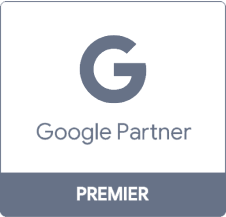How Do Search Engines Rank Paid Ads?
It definitely has something to do with how much you pay, but there’s more to it than just budget.
Call 888-601-5359 to speak with a strategist about PPC campaign management from WebFX, or keep reading to learn more about how you can improve your ad placement in search results.
Quality score
Quality score is a numerical representation of an advertiser’s trustworthiness. In general, the higher your quality score, the less you have to pay for good ad placement. The reverse is true as well — the lower your quality score, the more you have to pay for good ad placement.
These scores are all used whenever you create and schedule an ad. It’s used in conjunction with your bid for an ad to determine your overall placement, and is essentially used to ensure that Google’s users get the best possible results. The company wants to provide a positive experience for searchers, and that includes paid ads.
If you don’t help them by giving their users the information they want as quickly as possible, Google will make it harder for you to attract visitors to your site. It’s similar to word-of-mouth advertising: Someone who tells their friend to check out your company trusts that you’ll give them a great customer experience.
If you don’t, neither person will recommend you to anyone else. But if you do, then you have a better reputation for quality that encourages your previous customers to vouch for you again.
Google and other search engines operate similarly. You make them look better by providing their users with the information they need. And if you don’t, you’ll lose points in your quality score, and they’ll place other companies’ ads above yours.
Bid amount
Aside from quality score, the other major factor that affects your ad placement is how much money you bid for a keyword. Sometimes, it could only take a few cents to get your ad to the top place of a given keyword. Other times, it could take hundreds of dollars.
That’s because all keywords have different levels of competition, so there’s a big gap between the most affordable keywords and the most expensive keywords.
When you’re bidding on a keyword, your goal is to place higher than any of your competition in the final ad. That position often goes to the company that bids the highest. But bids aren’t that cut and dry.
When advertisers bid on a keyword, Google Ads (and most other PPC systems) operate on an auction system. The keyword with the highest bid generally gets preference in ad placement. But you don’t see competitors’ bids, and you don’t want to overpay on a keyword. So how do you do it?
Fortunately, systems like Google Ads have a recommended bid amount for every keyword.
In addition, most auction systems are programmed to take the highest bid and reduce it to one penny more than the next highest bidder. For example, say you and a competitor are bidding on a keyword. Your competitor bids 10 cents, and you bid $10.
You clearly win the bid, but you won’t pay $10 for the placement. Instead, the auction system will reduce your bid to 11 cents, and that’s what you’ll pay if someone clicks your ad.
And it’s important to remember that you only pay your bid amount if someone clicks on your business’s ad. In other words, if no one clicks on your ad, you don’t pay a penny.
Formula
Most PPC systems use a simple formula to determine a company’s ad rank.
Bid x Quality Score = Ad rank
This formula means that the companies with the highest bids and quality scores will rank first in lists of ads.
And while a high bid is easy enough to set (within budget constraints), it will take some time to create ads that earn high quality scores. That means if your company is operating on a tight budget, and you’re trying PPC for the first time, you’ll have a lot of difficulty getting the first rank.
But if you have a big budget as you start out, you have a chance to beat your competition by bidding higher than anyone else. And as you build a reputation with Google and other PPC outlets, it’ll become more and more affordable for you to take out ads for high-competition search terms while obtaining the first spot in ad placement.
Then, you’ll have an even better chance of getting traffic to your site, which will help your company grow.
In a nutshell, PPC is a winner’s game, and it takes some time to get off the ground. But once you do, you can expand your business online like never before.
WebFX works with PPC daily
WebFX is a full-service Internet marketing agency, and we have a team of PPC specialists who work hard to improve the quality scores of our clients every day. We all stay on the cutting edge of the industry, and we know how to get the best results for your dollar when you start a PPC campaign with us.
Contact us today to design a PPC strategy for your company!
Marketing Tips for Niche Industries
- Garage Door Advertising & PPC Management
- Getting Started with PPC for Lawyers
- Handyman Advertising: 3 Ideas for How to Advertise a Handyman Business
- Healthcare PPC: 7 Hospital Advertising Tips for Your Ads
- How to Use PPC for Insurance Agencies
- How Your Cardiology Practice Can Start a PPC Campaign
- Orthodontist PPC: Pay-Per-Click for Orthodontists
- Outstanding PPC for Contractors
- Pay-Per-Click Advertising (PPC) for Cabinet Manufacturers: How to Get Started
- PPC for Audiologist: Get Started with Audiologist PPC









